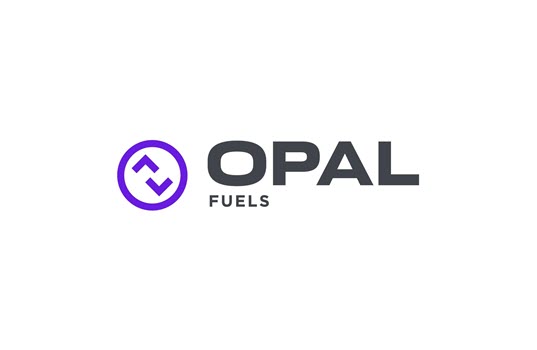OPAL Fuels LLC, a vertically integrated producer and distributor of Renewable Natural Gas (RNG) for heavy-duty truck fleets, announced today a contract with CITY Furniture to build three RNG fueling stations and supply the company with 7.75 million gasoline gallon equivalent (GGE) of RNG over the terms of the agreement. TruStar Energy, an OPAL Fuels company, will manage the CNG station development, construction, and service in Miami Gardens, Ocoee, and Plant City, Florida.
“Companies operating heavy duty trucks are quickly realizing that they don’t have to wait for new, unproven technologies and infrastructure to significantly reduce their greenhouse gas emissions and save on fuel costs—RNG does that today,” said Adam Comora, Co-Chief Executive Officer of OPAL Fuels LLC. “Our partnership with CITY Furniture will reduce their carbon emissions by 52,000 tons by switching to RNG from diesel fuel.
The three new stations join CITY Furniture’s first RNG fueling station in Tamarac, Florida, which OPAL Fuels built ten years ago. The stations and RNG dispensing agreement are part of CITY Furniture’s sustainability push and Green Promise for carbon neutrality by 2040. CITY Furniture is an early leader among Florida-based firms making a time-certain pledge to achieve net zero carbon emissions.
“We made the promise to invest in a greener future and to make a substantial effort to care for our planet two years ago. Our 2040 Green Promise using CNG lowers emissions compared to diesel. Using RNG will significantly reduce emissions even further,” said Andrew Koenig, President of CITY Furniture. “There was no other option but to partner with OPAL Fuels on this venture. We make thousands of deliveries every year, so transitioning all of our trucks to RNG is a critical step in reducing our emissions.”
Following years of testing and growing use, RNG has developed into a proven, low-cost, low-carbon fuel available today. RNG is chemically identical to the natural gas Americans use to cook and heat their homes, with one critical difference: it’s not a fossil fuel pumped from the ground. Instead, RNG is the natural byproduct of landfills and animal waste, captured and processed before it leaks into the atmosphere or is required to be burned off. Fleets that use RNG can reduce their total GHG by 99 to 149 percent compared to diesel, and RNG can also cost 40 to 70 percent less per gallon, providing an attractive rate of return on natural gas truck capital expenditures and a significant annual operating cost savings.
“We are proud to say our fleet is one of the greenest in the industry,” said Koenig, “and our transition to 100% RNG solidifies that. We will continue to push for a cleaner, more sustainable future partnered with OPAL Fuels.”









